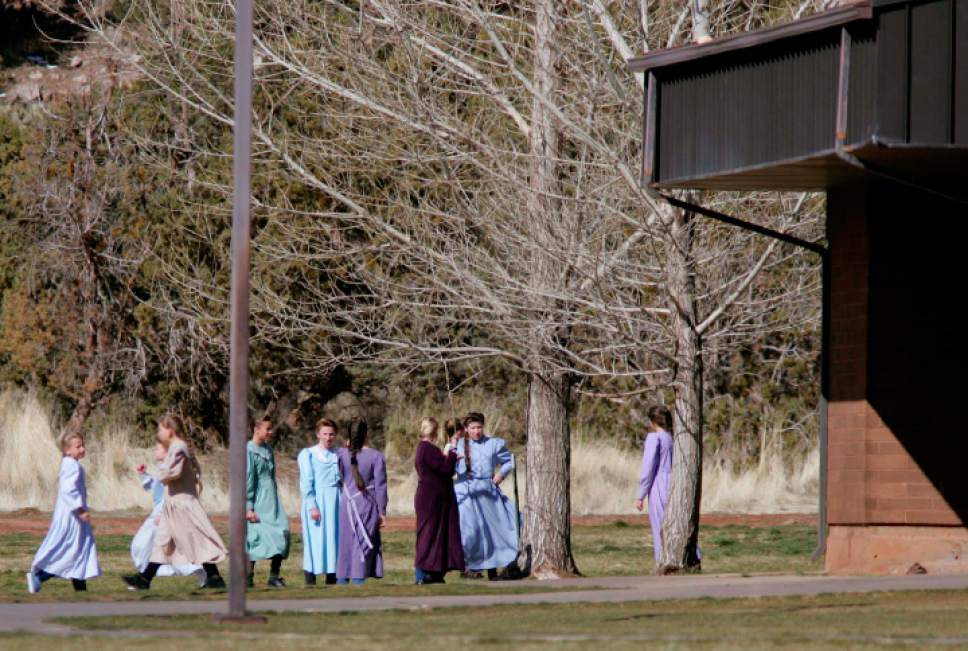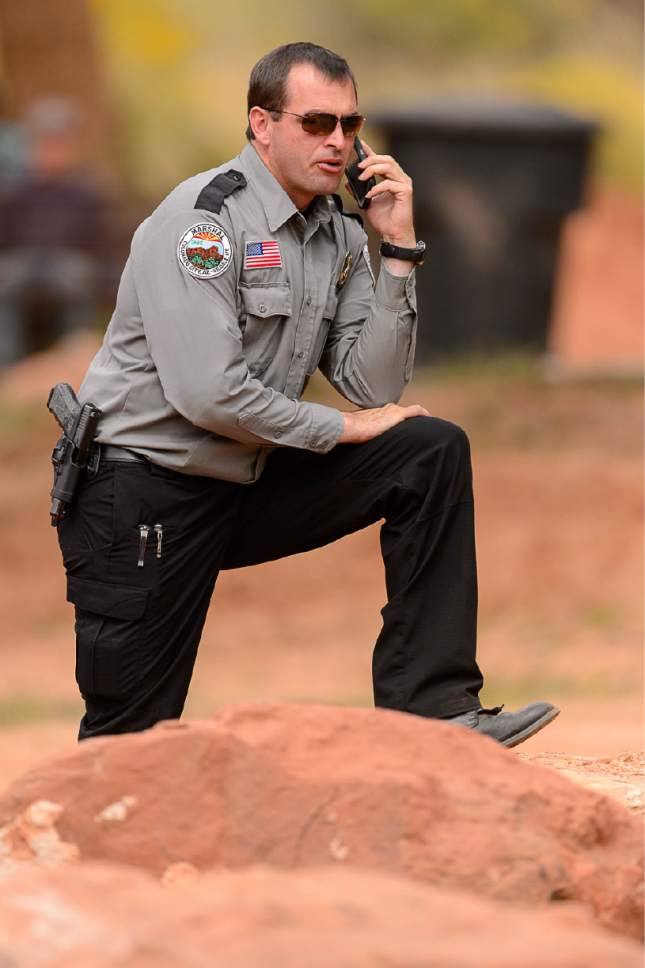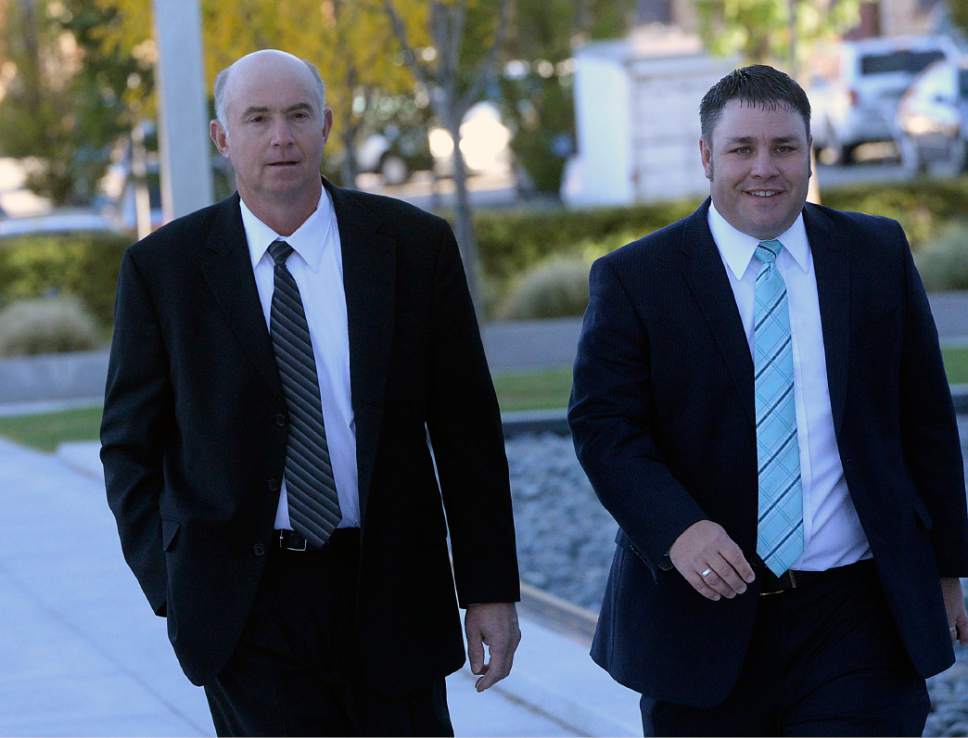This is an archived article that was published on sltrib.com in 2016, and information in the article may be outdated. It is provided only for personal research purposes and may not be reprinted.
Phoenix • The federal government should allow twin towns dominated by a fundamentalist Mormon sect on the Arizona-Utah border to police themselves, despite a jury's finding that they denied police protection, water and utilities to people who do not belong to their religion, a town manager testified Thursday on the last day of hearings.
The Department of Justice sued Colorado City, Ariz. and Hildale, Utah in 2012, claiming the towns routinely denied utilities and police protection to residents who did not belong to the polygamous Fundamentalist Church of Jesus-Christ of Latter-day Saints. The sect's leader, Warren Jeffs, is serving life plus 20 years for sexually abusing two girls he called his "spiritual wives."
A federal jury in March awarded six residents $2.2 million for being denied police protection, water hookups and utilities.
"My desire is to allow the municipality to conduct its business and regulate its subdivision," Colorado City Manager David Darger told a federal judge Thursday. "Someway, somehow the city has to be allowed to be a city."
The Justice Department this week asked U.S. District Judge H. Russel Holland to dismantle the Colorado City Marshal's Office, which polices both towns.
During the jury trial this year, evidence showed that the Marshal's Office routinely pursued actions against non-FLDS members, provided support for the church and declined to arrest church members.
The federal government also asks Holland to order the towns to adopt nondiscriminatory zoning and subdivision ordinances.
Colorado City is accused of resisting efforts from the United Effort Plan Trust, which holds nearly all of the town's property, to subdivide. Hildale is already required by a Utah court to subdivide.
A lawyer representing Hildale, Blake Hamilton, told The Salt Lake Tribune on Friday that he was pleased with the hearing. Hamilton said he and the attorney representing Colorado City were able to demonstrate the logistical problems of turning over policing to the sheriffs and present Holland with alternatives.
"The Department of Justice was just putting forth this idea and hadn't thought through the nuts and bolts of how this would work," Hamilton said.
Hamilton and the Colorado City attorney, Jeff Matura, also presented evidence of how the chief marshal, Jerry Darger, is a young peace officer — Hamilton said he joined the force in 2009 — who is committed to make changes at the marshals' office. One of the towns' witnesses was a police consultant hired to better train the marshals and improve policies.
Attorneys on all sides must still file closing arguments in writing then respond to those briefs. The earliest Holland can rule is February.
— Reporter Nate Carlisle contributed to this report.









